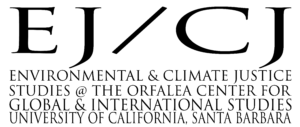CLIMATE JUSTICE STUDIES
“FFU is a 12 week training course for climate justice activists around the world who want to channel the power of the youth movement to the source of the climate crisis.”
Featuring free video lectures by leading figures in the emergent global climate justice movement.
Here’s a peek into one of their first classes:
Explore Fossil Free University and watch the project grow! (or go straight to the Fossil Free University Vimeo channel!)
CLIMATE JUSTICE — A Class in 4 Video Lectures, by Kumi Naidoo
:Video Lecture #1:
:Find it here, on the full list of classes:
Climate justice is no longer an abstract concept: it is now a global public agenda. However, voices from the Global South, and Africa in particular, where climate injustices prevail, remain inaudible in global discussions. Academics and philanthropists from the Global North generally shape the narratives and debates on climate justice with limited presence and representation of Global South. Most importantly, the voices of frontline communities, who bear the devastating impacts of climate change, continue to miss out from climate justice debates.
The Nairobi Summer School seeks to build new bridges. The School will bring the voices of frontline communities into international arena. The School will bridge conversation between prominent scholars and researchers on climate justice in the global North and those in Global South. It will provide an opportunity to explore diverse possibilities on climate justice.Today, there are numerous efforts by academics, advocacy groups and other non-state actors all seeking to advance research, scholarship and … Read More >>>
VIDEO: Introducing the Nairobi Summer School on Climate Justice — Mithika Mwenda, Exectutive Director, Pan African Climate Justice Coalition (October 2020; 10 min 35 sec):
PUBLIC LECTURE
Climate Justice Education
by Deb Morris, Research Scientist, University of Washington, EduTalk 2020, March 11, 2020 (6 min 43 sec)
ClimeTime – Climate Science Learning
NOTE: In this excellent and brief video that’s perfect for the classroom and for encouraging teachers more generally to scale up the urgency of climate education, Morrison describes her methods for teaching about climate change as justice-situated, place-based, community-centered, action-oriented, interdisciplinary, cross-cultural and intergenerational — what we might simply call a cultural and intersectional method.
Climate
Justice
Studies
eaching about the climate crisis from the perspective of solutions-oriented critical sustainability means observing and analyzing the collective steps being taken by nations, municipalities, movements, schools and universities, non-government organizations corporations and other institutions as they work to preserve the planet’s various life-enabling systems—not just for the benefit of today’s most highly impacted and least responsible communities, but for future generations of both humans and non-human species whom also deserve the right to live and develop their own capacities.
But how are such actions decided? Who participates and who benefits?
How can such actions be judged or measured for basic fairness? According to what metrics?
Such are the difficulties of conceiving and building the new field of Climate Justice Studies.
Thankfully, teachers confronting these questions today have considerable resources at their fingertips, drawn from every field, but especially from environmental justice, environmental studies, environmental humanities, environmental sociology, and environmental governance literatures.
In using these literatures to study collective action for confronting the climate crisis, we immediately discover how consequential they are for all living beings on Earth, including those of generations to come, thus revealing their inherently political dimension.
But the power to participate in these fateful political decisions is deeply stratified: power to decide, and therefore to live and thrive today and into the future, is concentrated 1) in the global north, among the historically industrialized economies; 2) in the elite political and economic 1% inside of each nation, and 3) in the corresponding global elite of owners, politicians and transnational institutions and corporations.
Under these difficult historical and political conditions, what responsibility do university teachers and students have to study, learn, and support under-represented communities in and across nations everywhere?
This might be the most difficult question for new practitioners of climate justice studies.
The harsh stratification of wealth that presides over these political disparities, and which thus helps determine access to environmental values of every type, raises further questions of relative justice/injustice that fly in the face of pressing economic concerns, for example the ongoing destruction of lives, livelihoods, and wealth associated with the twin crises of COVID 19 and the current recession it is driving.
How can climate justice studies balance the concern for environmental and climate values with these widely shared human health and economic values?
The answer must acknowledge one overarching fact: ongoing anthropogenic climate change has already determined that today’s carbon intensive economic, cultural, ecological and political practices are not sustainable—we already know that everything must change.
And so, with deep structural and cultural change necessarily on the horizon, the question for climate justice studies becomes: how can we as scholars, teachers, and activists ensure that collective action in defense of our shared climate futures leads to a more just social order?
The emergent field of Climate Justice Studies places this bundle of questions at the center of its disciplinary impulse.
Join us here, at NXTerra, in thinking through how best to engage and transform these important questions, thereby informing and advancing our collective struggle for a just transition to the best possible, most sustainable, and most environmentally friendly next earth.
- Updated — December 17, 2020
RELATED TEACHING TOPICS
CLIMATE JUSTICE – Selected Resources for the classroom
— FROM THE CUTTING EDGE OF CLIMATE JUSTICE SCHOLAR-ACTIVISM
Mary Robinson, Keynote Address at Climate Law and Governance Day, COP 21, Paris, France, 2015
The Mary Robinson Foundation – Climate Justice
PDF: Education for Climate Justice, by Ravi Kanbur, Mary Robinson Foundation – Climate Justice

![TOP IMAGE - Climate Justice Studies - Peoples Climate March, New York, New York, September 2014 [Widick 2014]](https://nxterra.orfaleacenter.ucsb.edu/wp-content/uploads/2020/12/TOP-IMAGE-Climate-Justice-Studies-Peoples-Climate-March-New-York-New-York-September-2014-Widick-2014.jpg)




